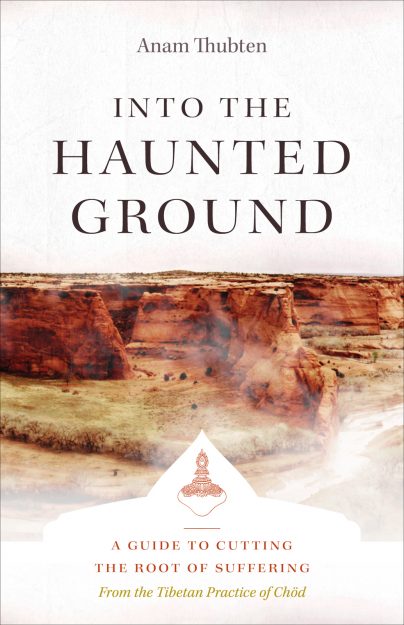 Into the Haunted Ground: A Guide to Cutting the Root of Suffering
Into the Haunted Ground: A Guide to Cutting the Root of Suffering
by Anam Thubten
Shambhala Publications, April 2022, $19.95, 256 pp., paper
Chöd—it’s not just for charnel grounds anymore. This book by the Tibetan Buddhist teacher Anam Thubten provides a clear and modern guide to the practice of “cutting through” the ego. Established by the 11th-century yogini Machik Labdrön, chöd was traditionally practiced by wandering yogis seeking to sever their attachment, sometimes at charnel grounds, where impermanence is on display. Thubten adds to the literature of this tantric teaching through personal stories, instructions, and historical notes that invite the reader to challenge the comfortable and seek out the “haunted grounds” in our daily lives.
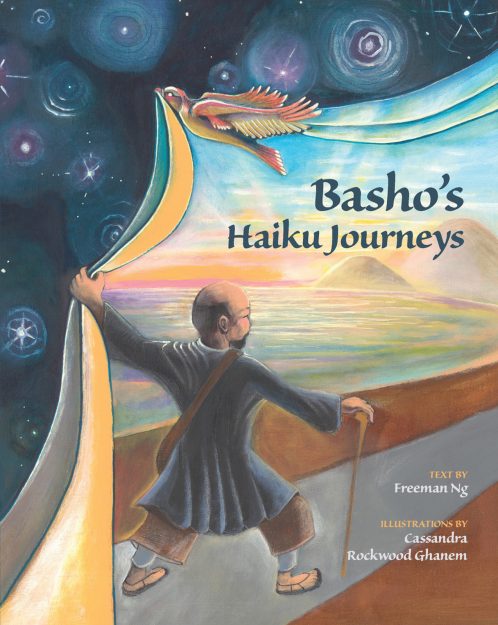 Basho’s Haiku Journeys
Basho’s Haiku Journeys
by Freeman Ng and Cassandra Rockwood Ghanem
Stone Bridge Press, October 2021, $16.95, 40 pp., paper
Read more from the March winner of the Tricycle Haiku Challenge in this illustrated children’s book about the 17th-century Japanese haiku master Matsuo Basho. Using the style of poetry Basho is credited with popularizing, Ng recounts Basho’s travels from leaving city life behind to becoming a wanderer who embarked on five epic journeys across Japan. The book is recommended for readers aged 7–10, who will likely be inspired to write their own haiku; fortunately, there is a short explanation at the end of the book on how to compose one.
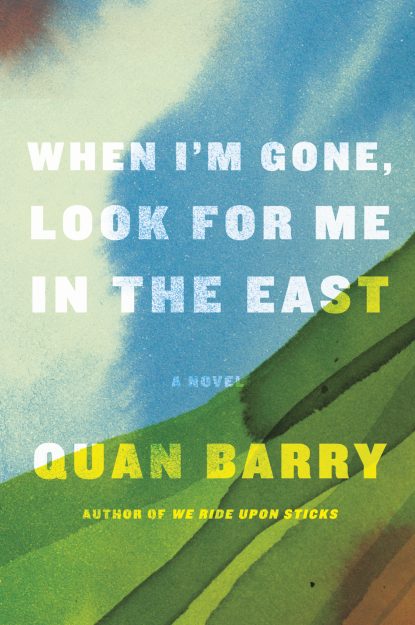 When I’m Gone, Look for Me in the East: A Novel
When I’m Gone, Look for Me in the East: A Novel
by Quan Barry
Pantheon, February 2022, $26.00, 320 pp., hardcover
Travel across the Mongolian steppes and the capital of Ulaanbaatar in this novel about telepathic, 20-something twins—one a Tibetan Buddhist monk, the other lapsed—in search of the reincarnation of a Buddhist master. Quan Barry, the Lorraine Hansberry Professor of English at the University of Wisconsin–Madison, is an award-winning author and poet who has traveled to Southeast Asia under US State Department auspices. Her new tale is both thematically and stylistically adventurous, exploring the tensions between secular and religious life while maintaining a commitment to the present tense that thrusts even flashbacks into the here and now.
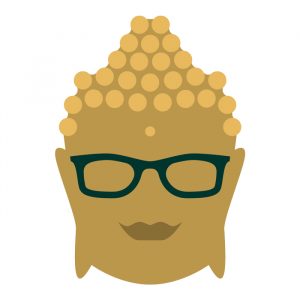
Scholar’s Corner
Sensitive Reading: The Pleasures of South Asian Literature in Translation
edited by Yigal Bronner and Charles Hallisey, with translations by David Shulman
University of California Press, January 2022, $34.95, 284 pp., paper
We often hear about what gets lost in translation, but Yigal Bronner and Charles Hallisey are more interested in what gets revealed. They consider reading a translated text to be a “heightened” act—and a pleasurable one. To demonstrate their point they asked Indologist David Shulman to translate some of his favorite works of South Asian literature; they then collected responses from contemporary poets, Sanskritists, Buddhist scholars, and musicians, whose joy is palpable, if not infectious. (Read it for free at luminosoa.org.)
–Sarah Fleming, Audio Editor
WHAT WE’RE REREADING
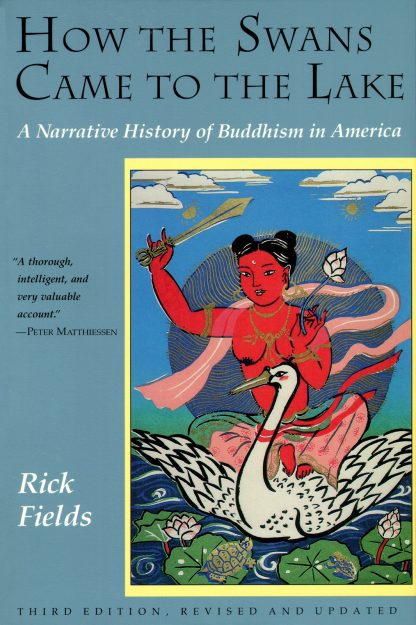 How the Swans Came to the Lake
How the Swans Came to the Lake
by Rick Fields
Buddhism is not a static history lesson but a religion consisting of numerous traditions. How the Swans Came to the Lake, first published in 1981 and revised several times before Fields’s death in 1999, provides a family tree of American Buddhism, chronicling the roots of dharma in the West, from Japanese and Chinese immigrants to the Beats and subsequent countercultures and concluding with the Dalai Lama’s visit to the States in 1991. A new fortieth anniversary edition from Shambhala Publications addresses later developments that Fields, who was editor of the Vajradhatu Sun and later editor-at-large at Tricycle, would undoubtedly have covered.
Read scholar Benjamin Bogin’s essay about the book and its author here.